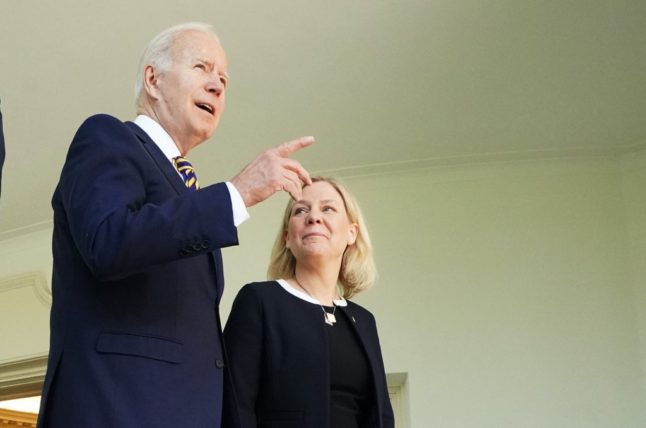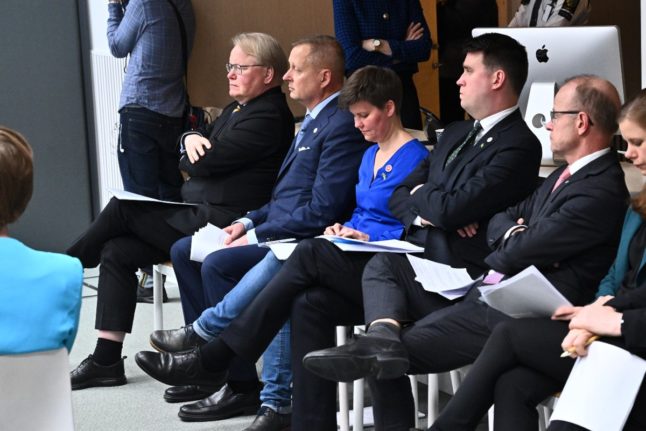With the red-carpet pomp of a White House visit, Biden welcomed Swedish Prime Minister Magdalena Andersson and Finnish President Sauli Niinisto days after they formally announced their NATO aspirations and said he was submitting their applications to the US Congress, where there is bipartisan support for ratification.
“The bottom line is simple. Quite straightforward: Finland and Sweden make Nato stronger,” Biden said, offering the “full, total, complete backing of the United States of America.”
“Sweden and Finland have strong democratic institutions, strong militaries and strong and transparent economies, and a strong moral sense of what is right,” Biden said with the two leaders at his side in the White House Rose Garden.
“They meet every NATO requirement, and then some,” Biden told assembled reporters without taking any questions.
Sweden and Finland, while solidly Western, have historically kept a distance from Nato as part of longstanding policies aimed at avoiding angering Russia.
But the two nations both moved ahead amid shock over their giant neighbour’s invasion of Ukraine, which had unsuccessfully sought to join Nato.
With Russia voicing anger over the Natuo bids, Biden said he told the Nordic leaders that the United States would “remain vigilant against the threats to our shared security.”
The United States will work to “deter and confront any aggression while Finland and Sweden are in this accession process,” Biden said. Drawing an implicit contrast to his predecessor Donald Trump, Biden called Nato’s mutual defense promise a “sacred commitment.”
“We will never fail in our pledge to defend every single inch of Nato territory,” Biden said.
Addressing Turkish concerns
But membership requires consent of all 30 existing members and Turkey has voiced misgivings. Turkish President Recep Tayyip Erdogan has accused the two nations of backing “terrorism,” a reference to the presence in Finland and especially Sweden of Kurdish militants from the separatist PKK.
Addressing Turkey, Niinisto said Finland was “open to discussing all the concerns that you may have concerning our membership in an open and constructive manner.”
“We take terrorism seriously. We condemn terrorism in all its forms and we are actively engaged in combating it,” Niinisto said.
Andersson said that Sweden is hoping for a “swift ratification process by Nato members.”
“We are right now having a dialogue with all Nato member countries, including Turkey, on different levels to sort out any issues at hand,” she said.
Until Turkey’s objections, US officials voiced hope for ratification in time for a Nato summit next month in Madrid.
Mitch McConnell, the top Republican in the Senate who frequently fights Biden’s agenda, said he would seek quick action on the bids by Sweden and Finland. He noted that Finland already commits two percent of its GDP to defence and that Sweden “is on pace to reach that target very soon” — a threshold backed by Nato and long pushed by Washington.
“These nations are setting an example which current treaty allies would do well to follow,” McConnell said on the Senate floor. “So I’ll be proud to continue amplifying their case for accession however I can.”



 Please whitelist us to continue reading.
Please whitelist us to continue reading.
So what , and why do you think this is so important ? Biden is not the President of Turkey which will block the membership bid so why keep writing about irrelevant news .